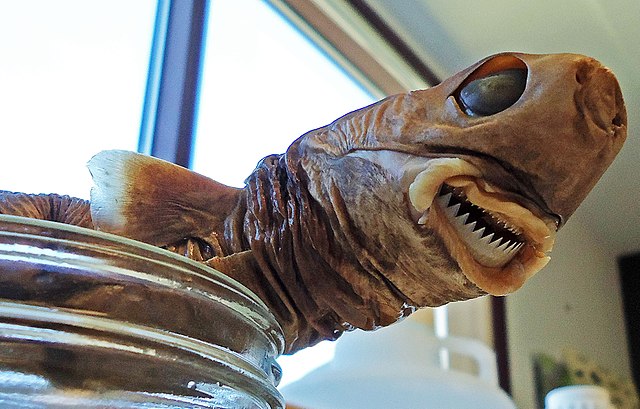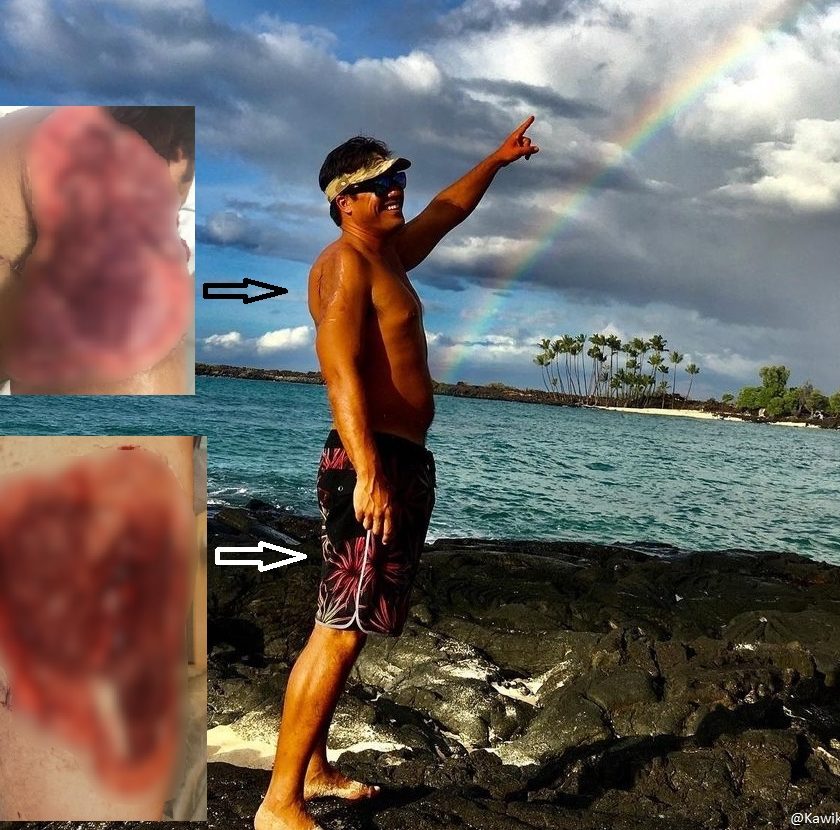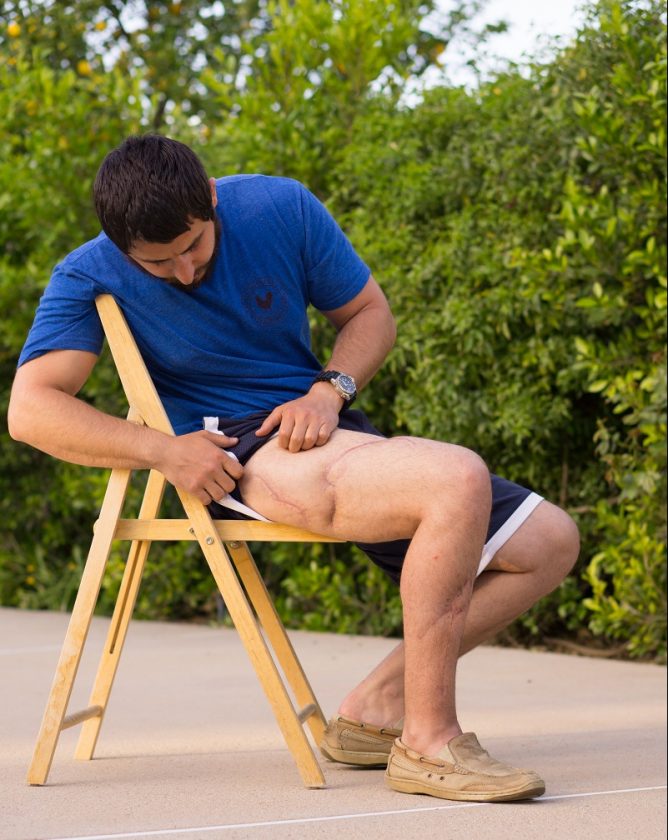A rare shark bite has been reported in Queensland, Australia.
Jack Tolley was wading with his family in Alma Bay in North Queensland October 27, when a circular chunk of his leg was torn off.
The 7-year-old’s father first spotted the small shark as it swam near him and even referred to it as a friendly fish. Things changed dramatically when the shark aggressively bumped against his leg and moved toward Jack.
When the shark latched onto Jack’s leg, his father quickly kicked it away and out of the water, but not before it had bitten a chunk of flesh Jack’s right calf.
The 73mm long circular wound (graphic image), which was nearly down to the bone and exposed fatty tissue, appears to have been caused by a cookiecutter shark.
Cookiecutter sharks received their name based on their crater wound bite pattern, which looks similar to a cookie cutter impression. The shark uses its lips to latch onto prey, then uses its sharp bottom teeth to excise flesh as it spins and sucks the flesh into its body.

Cookiecutters, also known as cigar sharks due to their elongated shape, are known to bite larger prey including humans and whales.
According to the University of Florida, the first confirmed attack on a human occurred March 16, 2009.
As a long-distance swimmer attempted to cross the Alenuihaha Channel from Hawaii to Maui after sunset, he was bitten on his chest. As he was exiting the water, he was also bitten on the left calf.
There have been two other recent unconfirmed reports of shark bites in Alma Bay, possibly by the same species of shark. One incident involved a man in his 60s, injured as he kicked the shark away.
If confirmed as bites, it is possible the same shark could be involved in all three incidents. While cookiecutter sharks have been known to swim in schools, they mainly hunt in deep water and at night. Meaning this shark may be diseased or injured in some way.
There have been a total of 87* shark attack bites in 2017, 5 of which were fatal*; 44 were reported in the US, with 30 occurring in Florida** and two in Hawaii. Thirteen have been reported in Australia, one of which was fatal. Five unconfirmed worldwide and not included in the total count.
All locations have been marked on the 2017 Shark Attack Bites Tracking Map.
*Two may be scavenge. **One report may have been outside of Florida waters.


